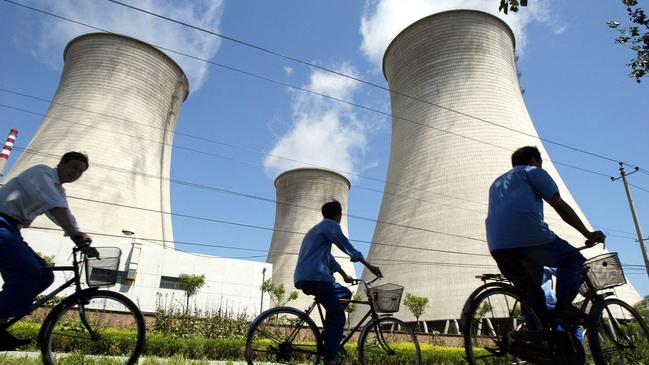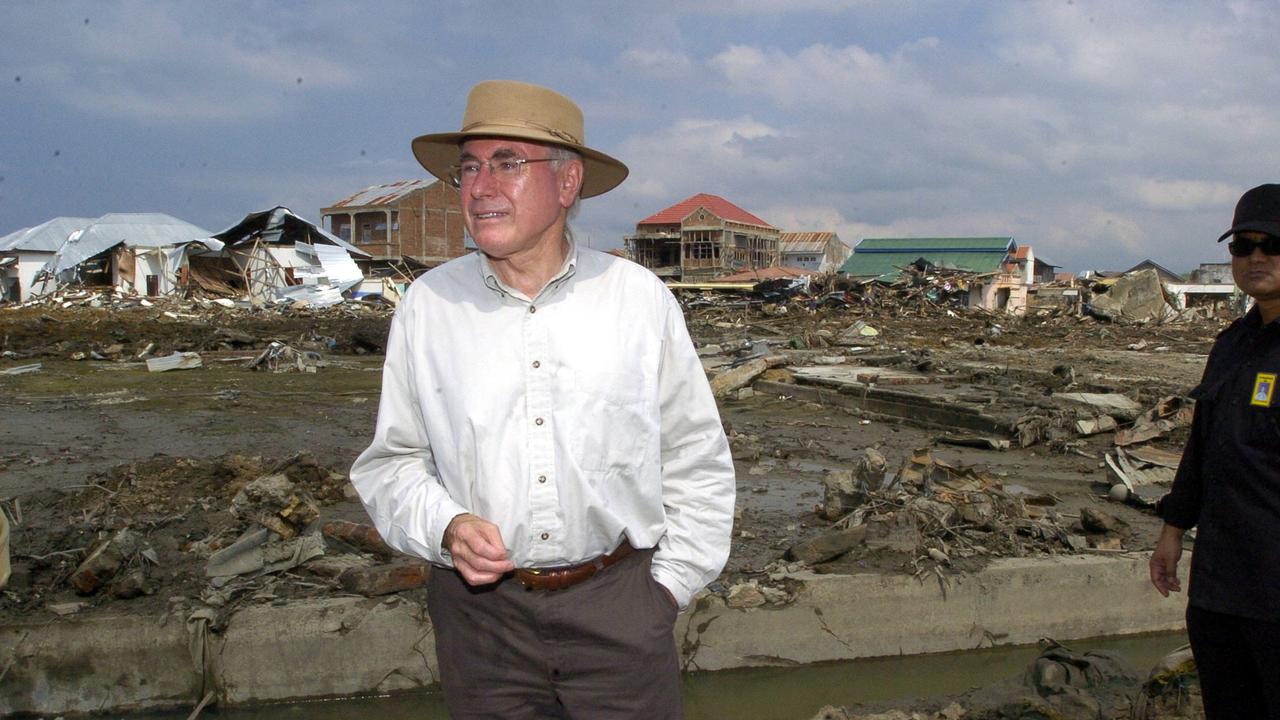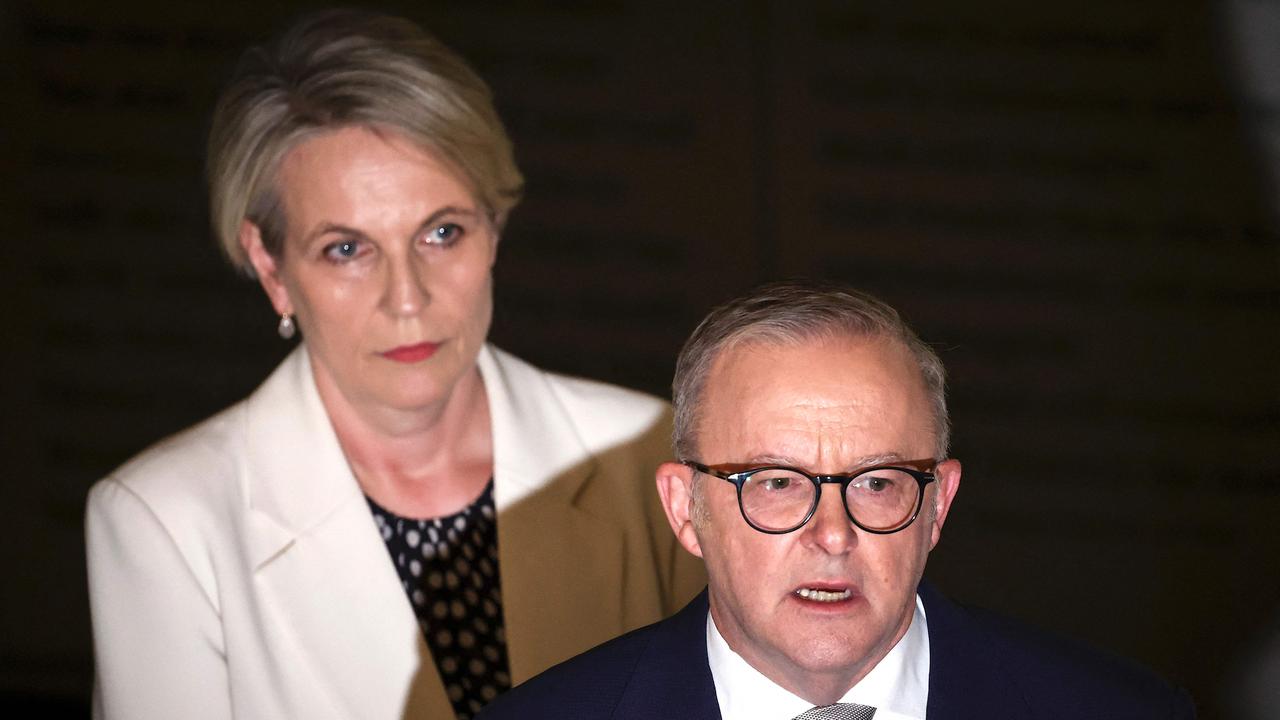Minerals Council of Australia CEO Tania Constable fronts Labor nuclear inquiry, says ‘no mandate’ for ban
Miners will declare there is ‘absolutely no mandate’ for a ban on nuclear, warning no evidence has been presented to a Labor-led inquiry to justify one.

Miners will declare there is “absolutely no mandate” for a legislative ban on nuclear energy in Australia – either scientifically, technically or economically – and warn there has been no evidence presented to the Labor-led nuclear inquiry to justify its prohibition.
Minerals Council of Australia chief executive Tania Constable will on Tuesday also lash Western Australia and Queensland for reinstating uranium mining bans, and urge the inquiry into nuclear power generation in Australia to “normalise” uranium legislation around the country, saying the two key prospective uranium states were “stuck in 1980”.
Ms Constable will question why Australia was “turning away” from uranium markets and interest in exploration and development, which had “returned with gusto”.
“At best, this is already a missed opportunity in the context of our developing strategic AUKUS relationship with the US and UK. At worst, it is negligent as these and other partners seek secure supply chains with responsible countries like Australia,” Ms Constable will say, according to a preview of her opening statement.
With next year’s federal election set to be a referendum on nuclear energy, Ms Constable will tell the committee nuclear power is needed to completely decarbonise the economy by 2050 amid “great uncertainty” over whether the Australian Energy Market Operator’s plan could deliver reliable, affordable energy in that time.
“There is absolutely no mandate today for retaining the legislative ban on nuclear energy in Australia. There is no scientific, technical or economic justification for the ban,” she will say.
“Without firm dispatchable power such as that from nuclear or carbon capture and storage, the system is extremely weather-dependent and costly to achieve close to 100 per cent decarbonisation. The last 20 per cent to completely decarbonise is extremely difficult. Nuclear gets us there at a lower total system cost.
“Before climate change became a mainstream issue, banning nuclear power to pass the legislation needed to build the new OPAL reactor at Lucas Heights was unfortunate. To maintain it in the age of climate action is inexplicable. At the end of the day, every Australian pays the price of a nonsense policy that should change.”
The Minerals Council’s push for nuclear comes as a new report, to be released by independent public interest think tank Climate Energy Finance, found Labor’s ambitious target of 82 per cent renewable electricity by 2030 is now on track if the level of activity and growth in monthly renewables share over the past six months can be sustained.
Electrical Trades Union organiser and licensed electrician Simon Brezovnik, who fronted the nuclear inquiry on Monday in Collie, WA, said most of the union’s members working at the local power station would be retired or dead by the time nuclear could be built.
“ETU members are getting jobs today on major renewable energy projects, and there are many more in the pipeline,” he said.
“Low-cost renewable energy can rebuild Australian industry because manufacturing and downstream processing of raw materials is, by its nature, very energy-intensive. South32’s Worsley Alumina and Alcoa are both wanting to decarbonise, and they can only do this through cheap renewable energy.
“Nuclear delivers too little, too late, it is far too expensive and carries a lot of risk.”
Days after Peter Dutton released his $331bn energy plan, which requires 65 per cent of ageing coal-fired power stations to keep operating until nuclear starts coming online in the mid-2030s and assumes nuclear would contribute 38 per cent of energy generation by 2050, Jim Chalmers said the Coalition’s “joke” modelling assumed the economy would be $294bn smaller by 2050 and the lost output in that time would be about $4 trillion.
“They’ve said that it relies on having a narrower, shallower industrial base where more industries go offshore. On what planet is that a good idea?” the Treasurer said.
“It was a proper nuclear meltdown what we saw from Dutton and (Angus) Taylor last week.
What these characters are proposing is a recipe for less growth in a smaller economy with less energy at higher prices, and no self-respecting alternative government could possibly sign up to the rubbish that was released last Friday.”
Mr Taylor, the opposition’s Treasury spokesman, said Dr Chalmers’ $4 trillion figure was “complete rot”.
“(It’s) absolute and utter nonsense,” he said. “When you have energy prices that are half or close to half of what they otherwise would have been under Labor, you’re going to have a stronger economy.
“The idea that a near doubling of electricity prices could strengthen the economy is beyond laughable.”



